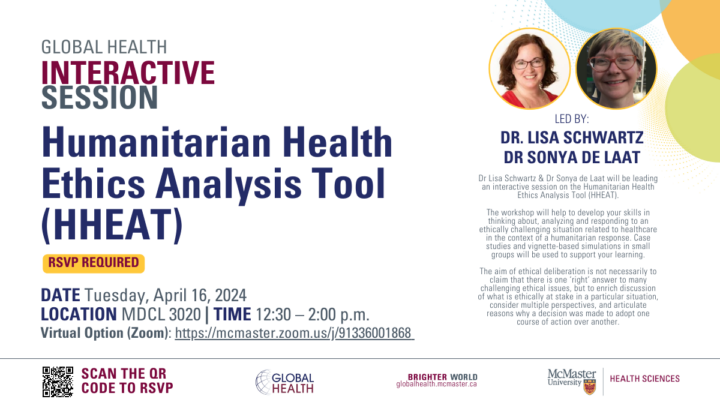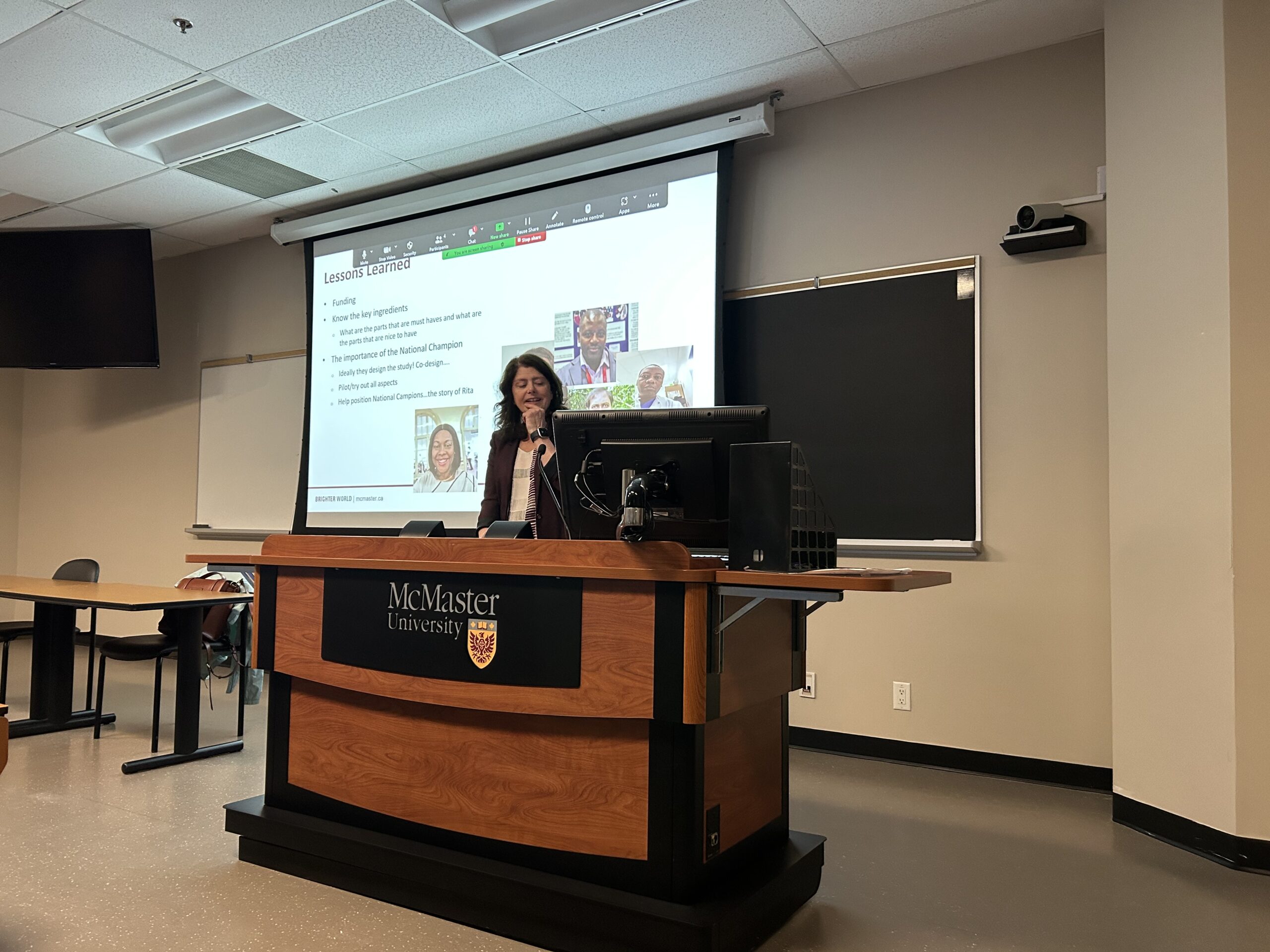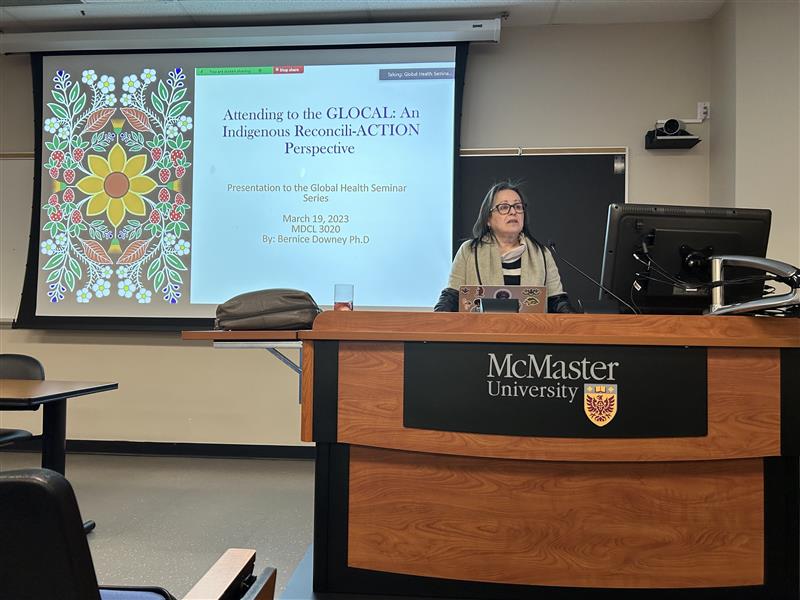Stepping up efforts to end TB

Today is World Tuberculosis Day, which is about raising awareness about TB and its devastating health, social and economic consequences. And it’s about stepping up efforts to end the global TB epidemic. MSc Global Health program grad Himani Bhatnagar is playing a direct role in those efforts. She is currrently a program consultant with the United Nations Development Programme (UNDP), working with the HIV, Health and Development Team in Bangkok. She talks about the Global Health program, what she’s doing now, and why it’s time to end TB.
How did you first become interested in TB?
I completed my BSc at the University of British Columbia (UBC) in 2017, majoring in Integrated Sciences where I combined disciplines of physiology, microbiology, and global health. I integrated these three disciplines because of my keen interest in infectious diseases, and specifically tuberculosis. I wanted to learn about them from different perspectives – the mechanisms of the bacteria (Microbiology), how it impacts the human body (Physiology), and what cultural, social, economic, and political forces drive the persistence of the century-old disease (Global Health). I first became interested in TB because of my advocacy work with Friends of MSF UBC (Doctors Without Borders) on campus for 4 years. I felt a strong sense of injustice when I learnt that TB is curable and preventable, yet kills millions of people, 95% of whom live in low- and middle-income countries (LMICs). We don’t hear about it as much in Canada because we generally have affordable access to medicines, high-quality care and good living conditions, except amongst our Inuit that continue to suffer at rates of up to 290 times that of non-Indigenous Canadians.
What does your current job role entail?
I work as Program Consultant with the United Nations Development Program (UNDP)’s HIV, Health and Development Team, in a project called the Access and Delivery Partnership (ADP). ADP supports LMICs to strengthen capacities, policies, and institutions for the efficient introduction and scale-up of new health technologies (medicines, vaccines, and diagnostics) for TB, malaria, and neglected tropical diseases. As part of my job, I support the project with a range of duties, including conducting research, communications and development of knowledge products, as well organize global and regional meetings and workshops with government stakeholders and partners including WHO and PATH.
What are some highlights of your job experience?
It’s been eye-opening to be a professional within the UN system, to see from up-close how exactly it functions and the challenges that exist within it. Having previously worked predominantly in research and community-based initiatives, it was interesting to observe a different side of the field, where we’re engaging at such a high-level, directly with governments of countries in Asia and Africa.
Another highlight has been learning that simply developing a medicine isn’t enough to reduce mortality and morbidity. Each step in the value chain needs to be in place, from the time a new health technology is developed until it’s in the hands of patients. It’s a complex process with multiple steps and actors, including the selection and prioritization of the product by decision-makers, passing regulatory requirements in each country, cost-effective pricing and procurement, supply chain management on the grounds, and implementation research and pharmacovigilance once it reaches a health facility. All of this has to happen to ensure sustainable access and delivery of health technologies. As UNDP, convening the relevant partners requires coordinated effort and resources.
How did the Global Health program prepare you for your current role?
The Global Health program provided me with the leverage, as a Master’s student, to be able to engage in activities beyond what I could have achieved as simply an undergraduate. I was able to connect and work with professors that are experts in my field, attend conferences and meet colleagues from all around the world, and gain basic skills in policy analysis, cost-effectiveness analyses, and critical thinking on issues such as globalization. These experiences and skills were instrumental in landing my internship with the UNDP, and thereafter my current position, as well as my research work, which will continue to form my future career.
Can you describe your thesis on TB?
My thesis was a review on patient perspectives on the quality of TB care they receive in India. I analyzed quantitative and qualitative data on patient satisfaction and user-experiences with TB health services, working closely with researchers at the McGill International TB Center which I was incredibly lucky to have the opportunity to do (thanks to the global health program!). As for results, I identified several themes that impacted user-experiences with quality of TB care and areas for improvement/recommendations towards more user-friendly health services. The review emphasized the importance and value of patient perspectives when planning health system transformations or improvements in quality of care. I’m currently working on the manuscript for publication in the next coming months.
What was your practicum experience?
Through my practicum, I got to supplement my research with real-life experience, where I worked at a small, private hospital in Mumbai oriented towards low-income families of the nearby Dharavi slum. Patients in India often choose private sector care where they have to pay out-of-pocket, despite the government providing free TB diagnostics and medicines at public facilities. I got to see this phenomenon first-hand, how families were willing to pay a little more for more person-centered, good-quality and trusted services of the physician that had serviced the community for over 20 years.
Where is your hometown?
I always struggle with this question because home has seldom been stable for me. I was born in Delhi, India, but grew up near Mumbai until I was 9 years old and lived in Kuala Lumpur, Malaysia for three years after that. Having then moved to Vancouver, Canada at the young age of 12, I would say my hometown is Vancouver, but I hold strong ties to my Indian heritage and am currently working in Bangkok, Thailand. Perhaps the constant exposure to people from all walks of life is what sparked my interest in global health and equity.
Why did you choose McMaster for your graduate studies?
I chose McMaster because the Global Health program had many opportunities for learning in a truly global setting where we would be challenged with different and diverse perspectives. These included intercontinental group work with students from Maastricht, and the Manipal Learning Symposium where we spent an amazing two weeks with fellow public health students from all over India, Europe, and Canada, conducting health research, presenting our scholarly papers, and exploring the beautiful Manipal university and city.
How do you ultimately hope to make a difference in the world of global health?
Ultimately, I want to continue to work towards meeting the global commitment of Sustainable Development Goal 3, which includes the eradication of TB, and other communicable diseases that predominantly exist in low- and middle-income countries. I believe they have no place in a world where we have the knowledge, tools and programs to treat, cure, and prevent them, yet we must strengthen overall health systems, provide patient-centered care, and address inequality and the social determinants of health to reach those goals. Agenda 2030 is just 11 years away and there is much work to be done, and to be continued thereafter.
Any advice for current or future students?
My advice for future students would be to make the most of the opportunities you have while you are at McMaster – get connected with professors, with health research you’re interested in, with clubs and organizations you support, with meaningful practicum and work opportunities, and most importantly with the peers around you.
Student Blog



